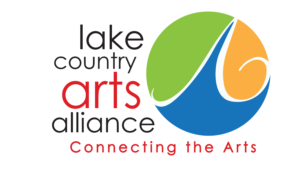We Should Not Underestimate the Importance of Arts Education
Doug LaBrecque & Barry Morisse
Raising the next generation is not an easy task and it comes with a lot of responsibility. If we are to nurture smart, well-balanced, capable, and empathetic people – we must take seriously the importance of arts education. While so much has been made of the need for a STEM focus, the arts offer crucial skills and learnings that we should not ignore.
The Benefits of Arts Education
A recent study from MIT bears this out, suggesting that we should be teaching music to students rather than coding. The study found that the pursuit of competence on a musical instrument increases a child’s brainpower and leverages some of the most important neuroscience that leads to better results as an adult. Music taps into a different part of the brain than is typically reached through other forms of education, and this is something that we should be investing in much more heavily than we already are.
Some of the key benefits of this sort of education include the following:
- Increased Engagement. Arts education is a vital aspect of engaging a wide range of students who might not respond well to typical lecture-style education. The different environment and methodology make for a uniquely compelling way of interacting with and teaching these kids.
- Enhances Creativity. The creativity that children learn to nurture through arts education is not just used in stereotypically artistic endeavors. It bleeds through into everything else that they do, improving problem-solving, critical thinking, and original thought.
- Sharpens Mathematical Performance. Music or art in general is full of logic, patterns, and other concepts that develop the mathematical capabilities of those who learn them[1]. It can be considered a trojan horse that delivers improved math performance without the jargon and overwhelm sometimes associated with core math itself.
- Leadership and Teamwork. Arts education is often a group endeavor and that opens doors for lessons in teamwork and leadership – as kids must learn to work together to create harmony. A study coming out of the Brookings Institute showed that arts education decreases disciplinary infractions and increases compassion for others. This is vital in our current context and makes a big difference in how children develop.
Music really does invigorate the brain.
https://incafrica.com/library/john-rampton-the-benefits-of-playing-music-help-your-brain-more
So why aren’t we prioritizing arts education for our children? Public funding has been notoriously absent in recent times and it falls to us to ensure that our young people have the opportunity to discover and explore the magic that lives within the arts.
Lake Country’s Commitment to Arts Education
Numerous local organizations have expanded their operations to offer arts education initiatives because they strongly believe in the mission. These groups include:
Festival Hall
The Plaza Arts Center and the Old School History Museum
Oconee Performing Arts Society(OPAS)
Georgia’s Writer Museum
The Artisan’s Village
Plaza Alliance for the Performing Arts
Lake Country Players
Lake Country Chorus
Andalusia Institute
Putnam County Charter School Systems
These organizations are all part of the Lake Country Arts Alliance, a local consortium working together to further commonly held beliefs and goals. There are other wonderful arts group who are not a part of the alliance, and all deserve our support.
We call on more players to get involved so that we can give our future generations the gift of ongoing arts education – that can spur them on to become the best that they can be. This is a crucial piece of the puzzle, and it’s something that doesn’t get the attention it deserves.
Please support these local organizations so we can transform the next generation through the power of the arts.
[1] Sylwia Holmes and Susan Hallam. The impact of participation in music on learning mathematics. London Review of Education. Vol. 15(3):425-438. DOI: 10.18546/LRE.15.3.07
